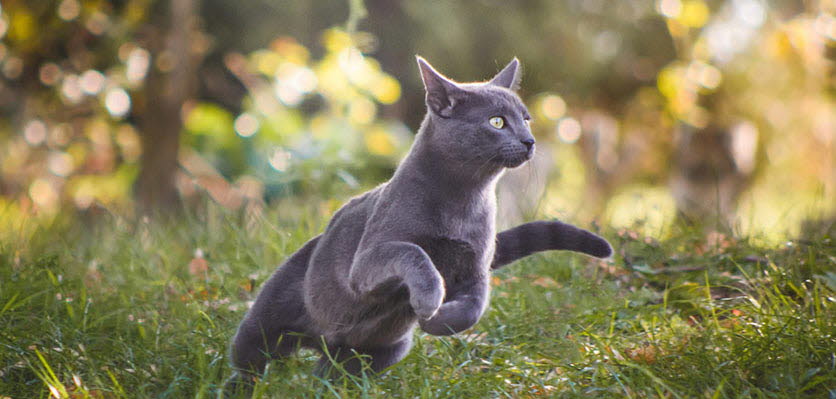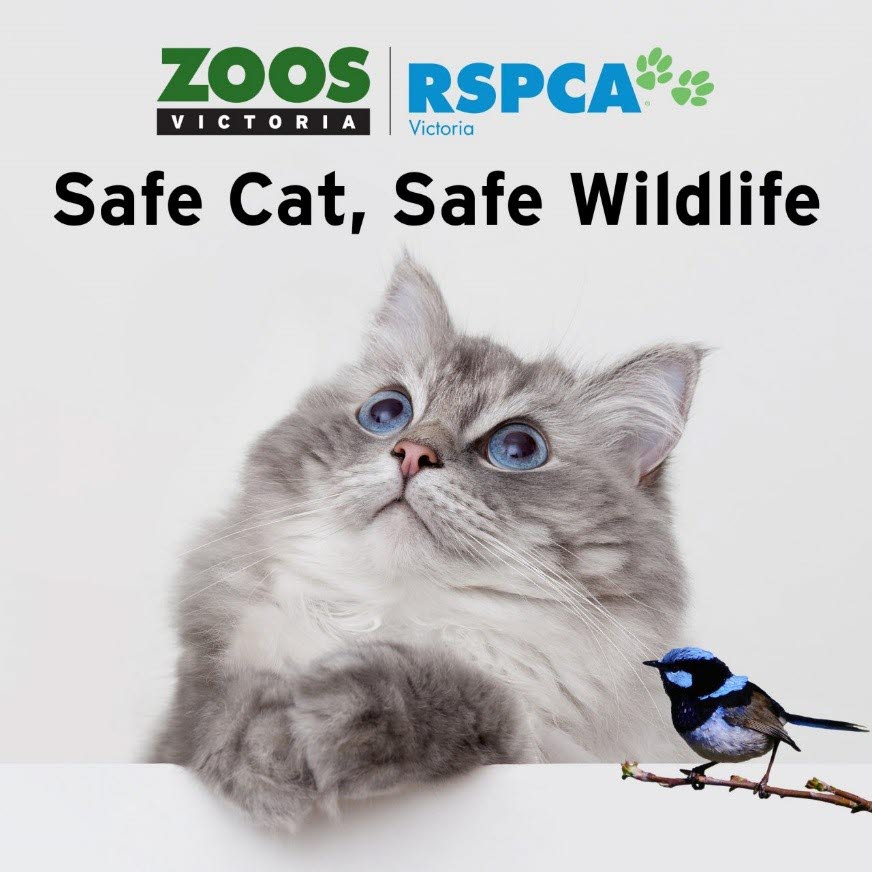
Have you ever been presented with a pet cat that was injured or sick because of an incident that occurred outdoors? Perhaps it had been in a fight, hit by a car, or eaten bait? An alarming new survey shows that nearly three quarters of Australians report having lost a pet cat due to an incident associated with a free-roaming lifestyle. Of these, 26.9% had lost a cat to a car accident.1
Tragically, so many of these incidents are avoidable, and nobody knows this better than the people treating the injuries. That’s why Zoos Victoria and RSPCA Victoria, in collaboration with the Australian Veterinary Association (AVA), are appealing to vets across the country to support the Safe Cat, Safe Wildlife program.
A community of caring cat owners
The Safe Cat, Safe Wildlife initiative is a community of cat owners who are committed to caring for their cats and wildlife. With more than 14,000 people signed up so far, the community provides a free platform for members to exchange and receive free tips and advice from experts in veterinary science, animal welfare and training to ensure they have the right tools and resources to provide their pet cat with the longest, safest and most enriched life possible at home.
The campaign also seeks to raise awareness of the fact that local wildlife species are more protected when cats are kept inside or safety contained to the home.
Claws for concern
A recent study by authors at three Australian universities combined nationwide data on cat population, hunting rates and spatial distribution to calculate that pet cats are responsible for the deaths of 61 million birds alone per year. Of these, half are native Australian species2. This statistic is attributable to the number of pets allowed to roam which, in the state of Victoria, currently amounts to two thirds of all owned cats.
These rates, combined with the some 316 million animals killed each year by unowned or feral cats, present a major driver for the ongoing decline of some native species.
Cats are not the enemy
Importantly, rather than demonising pet cats, Safe Cat, Safe Wildlife advocates for their compassionate and ethical containment. There is no doubting the important role that companion animals play in strengthening care and compassion, and feline family members are no exception.
Help spread the word
Vets hold an important role in the lives of cats and their families. A survey of 12,010 cat owners conducted by Dr. Andrea Harvey at UTS and the International Society of Feline Medicine shows that they are overwhelmingly more likely to seek advice from a veterinarian than from any other source, confirming that vets “are in a good position to make improvements to the welfare of pet cats”.
Many vet clinics are already promoting the benefits of a stay-at-home lifestyle for cats using Safe Cat, Safe Wildlife materials. All clinics that register their support receive brochures, postcards and other materials free of charge to share with cat owners.
You can help give pet cats and local Australian wildlife the best possible chance at a safe and happy life by registering your interest to become a Safe Cat Supporter. Get in touch. We’d love to hear from you.
1 Elliott. A., McLeod. E. M., Howell. T. J., Bennett. P. C. (2017) Unpublished data from ‘Living responsibly with cats: using the Theory of Planned Behaviour to understand compliance with cat management behaviours’, Honours thesis, La Trobe University.
2 Woinarski, J et al. ‘How many birds are killed by cats in Australia?’, Biological Conservation, vol. 214, 2017, pp. 76 – 87.

